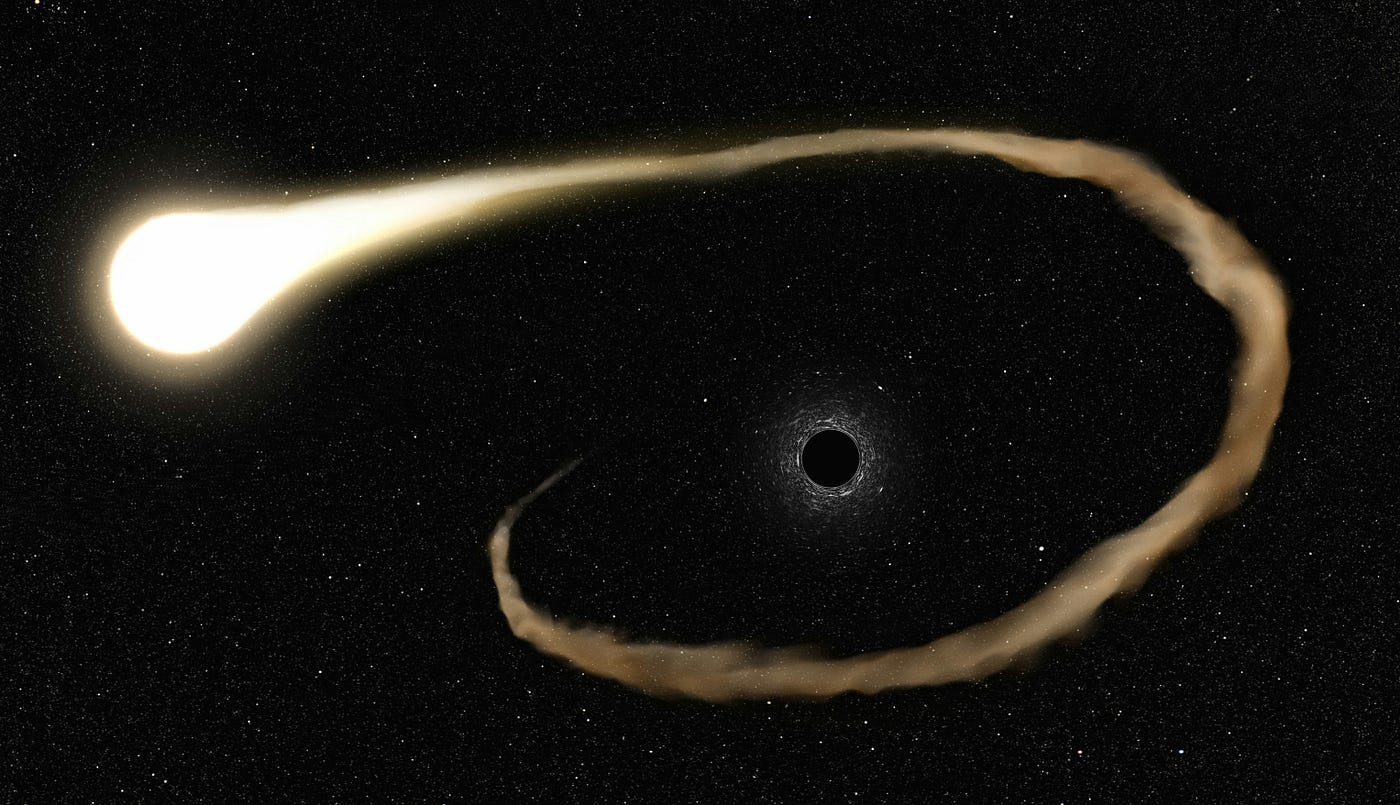When you meet a narcissist, there is a tiny window of opportunity to catch them out.
If you’re lucky, you will enter the interaction rooted in reality. You understand that people hold the potential for good and evil. Civility tends to reign in your world, so to truly know the devil in a person takes time. Above all, you’ve come to learn that not all that glitters is gold. This is the inevitable developmental outcome of someone who has matured.
When such a ‘grounded’ person comes into contact with a narcissist, they feel this firm grip on reality slipping. Everything the narcissist says is polished and impressive, and everything the narcissist sees in the grounded person is dazzling. Having successfully navigated out of the magical state of mind of a child, the grounded person senses themselves being lulled back into fantasy. As the current of the narcissist’s grandiosity pulls the grounded person away, they must make a crucial decision: Disengage, or be dragged away for good.
The sane person disengages, and politely excuses themselves.
Yet not all of us are sane at all times. Some of us are plagued by complex trauma, and fantasy comes easily as a form of pain relief and coping. Certain people might be coming off a breakup, or loss of a loved one. Perhaps they are bored, and allow their curiosity to get the best of them. Whatever our reason, some of us kiss the real world goodbye, and get on the narcissist’s fantasy boat, happy to be taken to a place where our pain and sorrows no longer matter.
A Brush With Death
Those heady first weeks or months with a narcissist are dominated by wonder and potential. Covert narcissists are overly cooperative while demonstrating that they are ‘just like us’, while overts are like the wind, leading us playfully through the world without looking back. In romantic relationships, the narcissist is seductive and flirtatious. In all cases, they are optimistic and forward-looking. They embody life.
Like all highs, however, the downward pull eventually emerges. The narcissist might flip out, erupting in a rage when suddenly triggered. They may grow emotionally cold and contemptuous, or act avoidantly. Or perhaps nothing dramatic happens at all, except you begin to feel empty and sad for no apparent reason.
This is usually the time when confusion and shame take over. We start asking what we did wrong, or wonder what happened to those glittering first months. As the narcissist transitions out of idealisation and begins to devalue us instead, a howling pain emerges. Death grips us. But this grim reaper is not here for us. He is here for the narcissist, who is nowhere to be seen, having long completed their discard and left us in their wake.
And yet, the narcissist is very much alive. Aren’t they?
Remaining Ahead Of The Treadmill
A narcissistic relationship feels like running on a treadmill. There are no pauses, no rest to be had. The show must go on, and it quickly gets exhausting.
There is something inhuman about the narcissist’s approach to life, we soon realise. Something anti-life. Our own days are filled with births and deaths. Sunrises and sunsets. New and full moons. The passing of the years. All beautiful events inevitably end. Interactions. Jobs. Opportunities. Love. Life is a constant rhythm of ups and downs.
The narcissist always wants the up, and loathes the down. Failure. Loss. Rejection. Sickness. Ageing. They deny it all, preferring to remain on the grandiosity treadmill.
To the naked eye, this may seem like a lust for life. Ambition. Optimism, even. The narcissist is a go-getter. And yet, in reality, the narcissist’s false self is harbouring a dark secret. Much of this comes to light in the form of heavy moods and self-isolation when narcissistic supply is low. For brief moments, you can witness it first hand: The narcissist is grieving.
Much like low tide reveals a rock, the ebb of supply reveals a grief as ancient as that very rock. This is a loss the narcissist has carried their entire life — ever since their heart broke, after the divine child that they were died suddenly.
The Earliest Wounds Cut Deepest
When narcissistic supply runs low, a deep ache in the narcissist’s chest comes into focus. There’s a pain within this ache that has a gravitational pull like a black hole. As the narcissist stares down this gaping hole, they come face to face with the abyss; an infinite emptiness filled with equally infinite pain. They sense that the deeper they fall, the more exponentially painful the ache will grow, and the more terrifying the emptiness will become.
And they are right.
Strange as it may sound, I wish to invite you to journey with me into this black hole, so that we may learn a thing or two.
Popular psychology likes to refer to ‘the narcissist’ as a singular cut-out villain. Yet while narcissists may adhere to a particular ‘archetypal’ behaviour pattern, their origin story is unique to the individual.
The fate of some narcissists was determined at conception, as they came into existence in a hostile environment, being born to parents either unwilling or unable to love or see them for the precious child they were. This kind of wound runs the deepest, as the baby senses and internalises the painful truth before obtaining consciousness. They understood that they were not valued — before they even understood what it was to understand.
Other narcissists were forged in the fire of dehumanising expectations, dissociation and objectification. The people around them, above all their parents, only ever interacted with the person they wanted the narcissist to be. They saw the narcissist as they should become, rather than who they truly were.
In both of the above cases, the narcissist felt unwanted and unseen. In the first example, that pain became irredeemable and intolerable, as their very existence on Earth was rejected by those who created them. In the second case, the pain had an outlet, a glimmer of opportunity at redemption. Become the most special, and you can be loved. Yet even then, the narcissist’s True Self was rejected. Something had to give.
A Life-Saving Tragedy
Inside every narcissist is the seed of a child gushing with love, depth, humanity and potential. Such a person holds human solidarity and mutual prosperity above all else.
Not so for the narcissist.
The result of being unloved and unseen early in life is an archaic wound of astronomical proportions. As the black hole in the narcissist’s heart gradually swelled open, and anger, shame and sadness poured out, the narcissist’s humanity became covered in black like an oil slick. Gradually, all life within them began to choke and die. Unable to tolerate this unfolding psychological disaster, the narcissist’s survival mechanism kicked in. They shut the hole, along with all that anger, shame and sadness, heralding in immediate relief.
Yet soon, the consequences of this drastic action grew clear. Not only did the narcissist rid themselves of their anger, shame and sadness, but also their love, depth, humanity and potential. The soul of who they were was also in that hole, along with the child they were, and the fully-actualised human they could have been. What they were left with was a mind dissociated from reality, and a false self projecting the person they wished to be out into the world. A human with substance had been replaced by a psychological hologram.
At ground zero, marking the spot where the black hole was slammed shut, remains a grave. Yet it is not a resting place. The cynical ones may argue that this child is long dead. Others may contend that the child remains there, trapped alive, praying for a divine hand to open that hole and reach down.
A Return Journey
Most narcissists refuse to accept that anything is wrong. “I like my mind,” one narcissist once gloated to me. Another, when I asked them how they feltabout something, simply hesitated for one second, then changed the topic as though I had never uttered the question.
Perhaps narcissists lack the will to try. Maybe they have simply lost their way back. For that tiny minority who wish to approach the path, I offer them a signpost, on which is a single word: Grief.
I believe that narcissists avoid accountability and healing because they have no idea what they have lost. If the truth ever dawned on them, they would recognise that heaviness they carry as grief for the death of the beautiful person they could have become. From there, they would have a choice to make: Accept this truth into their heart and allow their delayed grief to wash over them, or carry on as normal.
As anyone can attest, grief is difficult to face. The loss of a career, an identity or a loved one can take months or years to process, feeling like a mountain to climb. The narcissist’s grief can feel like Everest in comparison — if they ever faced it.
So what awaits the rare narcissist who dares to venture on this path? Are they on the way to spiritual El Dorado, or shattering disappointment? Will they save and resurrect their lost child, or be forced to accept its death and lay the child to rest for good? Those who have successfully navigated a grief journey might have an answer to give. Often it is a combination of both for a narcissist. For one, they can never get those lost years back, nor the full depth of their humanity. This is something that must be properly grieved.
And yet, if the narcissist can process enough of their prolonged grief, they may find their grandiose need to be the most special and superior fade away. From this, an abiding humility may emerge, bringing with it fertile soil for new humanity to flourish. At the very least, the grief journey may spare the narcissist from decades of further addiction and self-destruction, and herald in an era of peace and self-acceptance.
And who knows what miracles may occur? They may even return from their journey hand-in-hand with a long-lost companion, along with renewed roads to travel and a story to tell.
Fascinating articles on grief by Nathalie Morales:
How Death Can Guide Us Through Grief And Life
How Grief Can Unlock Our Authenticity
How Grief Can Show Us What Love Truly Is
Browse more articles:
Narcissistic Relationships | Knowing The Narcissist | Abuse Recovery | The Narcissistic Family| Exploring Narcissism | Borderline & Histrionic
Check out my Books on Narcissistic Abuse. You can also Buy Me A Coffee to support my writing.





